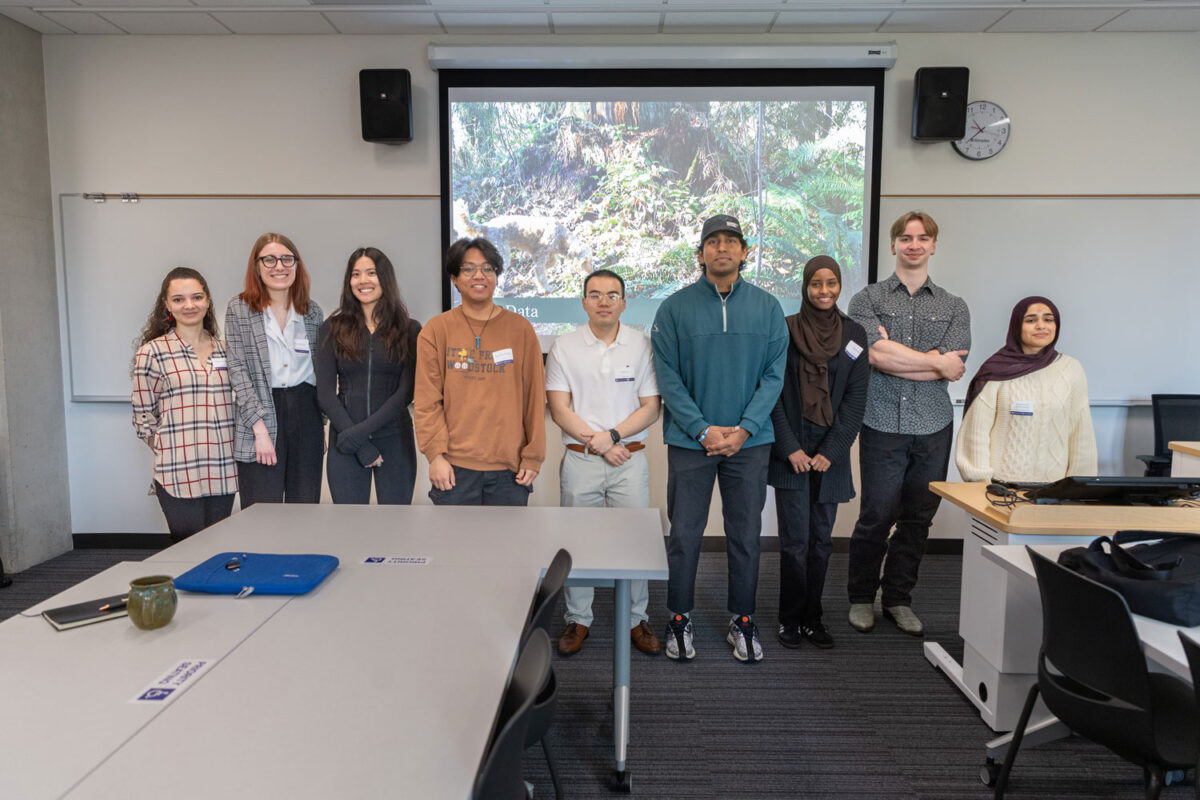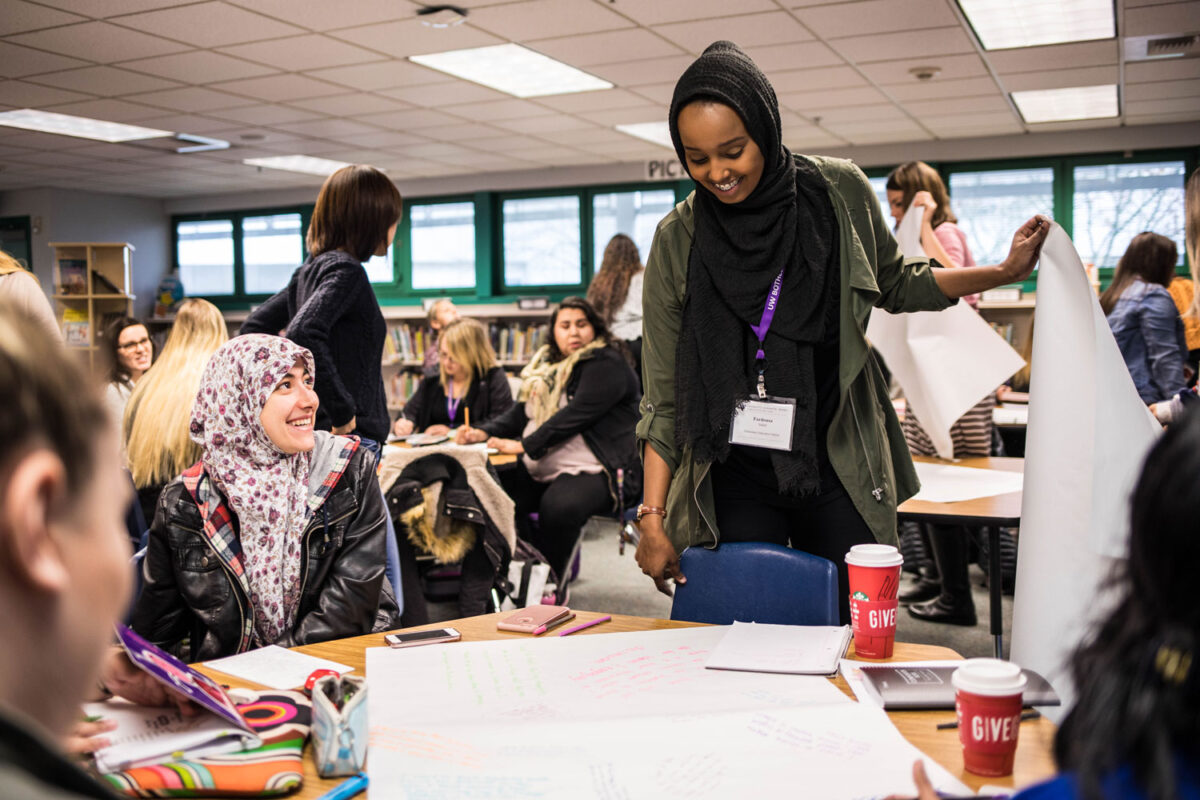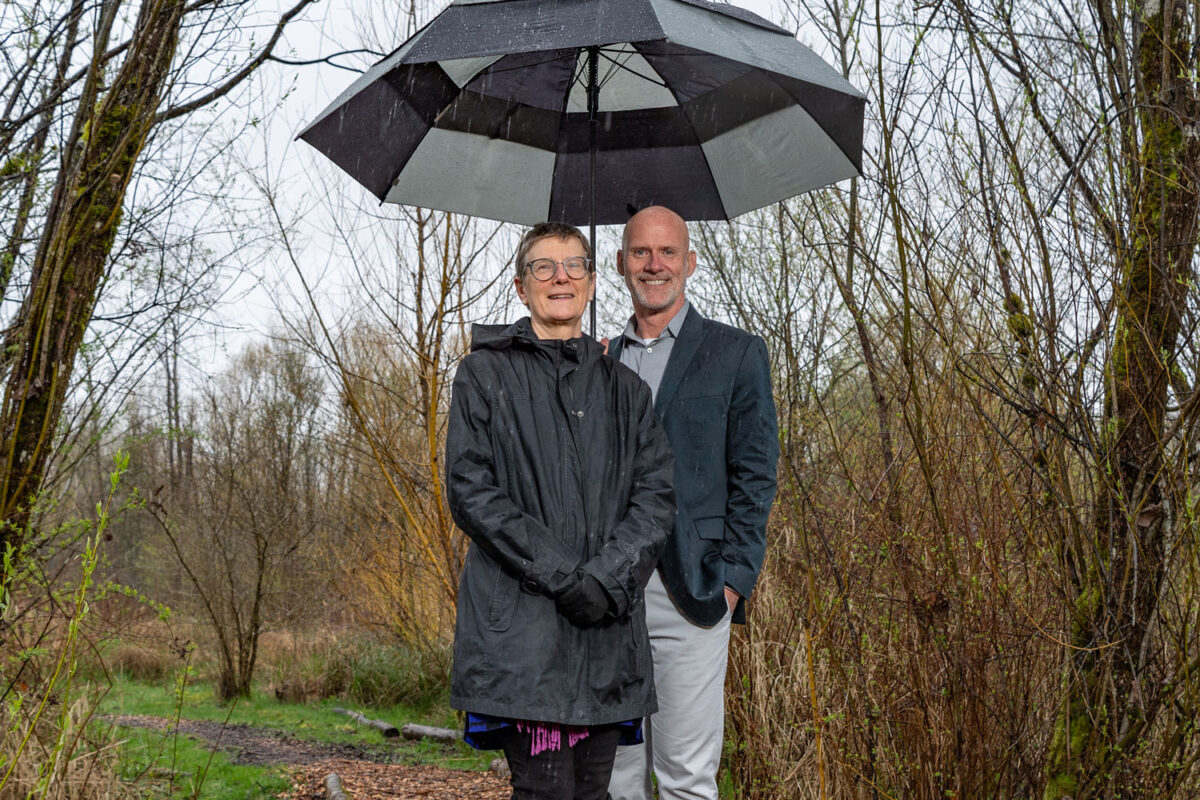By Douglas Esser
Mentors at University of Washington Bothell helped a promising high school student start work on an augmented reality therapy for amputees, a project that won him $90,000 in science fair scholarships.

Afeef Sheikh is a senior at Redmond’s Tesla STEM High School who learned about UW Bothell’s Digital Future Lab in the summer of 2015 and was welcomed by Executive Director Jason Pace.
Pace introduced Sheikh to Rafael Silva. He’s a liaison between UW Bothell’s School of Science, Technology, Engineering & Mathematics and the support team in information technologies. Silva and Makerspace lab manager Ivan Owen taught Sheikh the basics of the software he needed. He calls their guidance instrumental.
The result was a biomed engineering project with a name that steps into the precise style of scientific writing, “An Alternative Solution for the Treatment of Phantom Limb Syndrome Through the Utilization of Augmented Reality.” Sheikh presented it at four science fairs between March and June.
“Afeef thrilled us with his performance during these competitions by advancing from regionals to state and nationals, and being recognized with excellence awards,” says Silva who works with UW Bothell's Alliance for Medical Device Innovation.

The alliance is interested in mentoring more high school students and involving UW Bothell students in other innovative rehabilitation treatments, the development of robotic prosthesis and expanded research in new topics, Silva says.
Sheikh plans to continue his research through his college career, whether at UW Bothell or another university. He’s driven to help the millions of amputees who suffer mysterious pain from their missing limbs due to the way the brain processes nerve signals. The most common therapy for a missing hand is a mirror box, which tricks the brain into seeing an image of the hand. It’s a therapy that has been around for 20 years.
“Where is the modern touch, finesse and technology?” Sheikh wondered.
His alternative uses augmented reality to create an image of a virtual hand on a phone or computer screen to mimic movements.
“It’s a subconscious psychological benefit,” Sheikh says. “The struggle and courage of these people is something really inspiring to me, and I want to do everything I can to help these people out.”
Sheikh says he will talk about his UW Bothell biomed engineering work in a speech Sept. 17 at the TEDx youth platform at the Lake Washington Technical Institute in Kirkland. He’s also been invited to present his poster on Sept. 15 at the Washington State Academy of Sciences annual meeting and symposium at the Museum of Flight in Seattle.
“When I go to college, I don’t want any of this to stop,” Sheikh says. “I want to keep working on this. There are so many people I could help if I made this breakthrough.”


